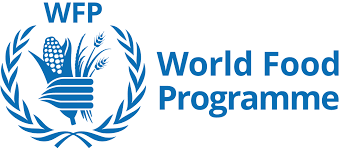By Richard Jones
*Khartoum, Sudan* — The United Nations World Food Program (WFP) has taken a decisive step to investigate its operations in Sudan as it grapples with a deepening famine crisis. The initiation of the probe follows troubling allegations of fraud and the suppression of vital information regarding food aid distribution by two senior officials in Sudan, as disclosed by multiple sources with knowledge of the situation.
Under the oversight of the Office of the WFP’s Inspector General, the investigation aims to uncover any irregularities that may have impeded the effective and efficient delivery of much-needed food assistance in Sudan. The urgency of addressing these allegations is underscored by the severity of the hunger crisis in the region, exacerbated by the ongoing conflicts between Sudan’s military and the Rapid Support Forces, which have further strained humanitarian efforts.
In addition to examining internal conduct, investigators also look into claims that Sudan’s armed forces have obstructed the delivery of essential food aid to vulnerable, needy populations. Moreover, the unexplained disappearance of a substantial quantity of fuel supplies—reportedly totaling 200,000 liters—has raised suspicions of logistical challenges and operational deficiencies that may have hampered the timely and equitable distribution of aid to those facing acute food insecurity.
The humanitarian situation in Sudan is dire, with an estimated 25 million people confronting a food crisis amid a complex backdrop of political turmoil, armed conflicts, and economic hardships. The growing needs and vulnerabilities of the population underscore the critical imperative for transparent, accountable, and efficient aid operations to ensure that assistance reaches those most in need without undue delay or obstruction.
The WFP’s investigative efforts aim to illuminate alleged malpractices and operational obstacles within its Sudan operations, with the overarching objective of enhancing accountability, transparency, and operational effectiveness in the delivery of life-saving food assistance. The investigation outcomes are poised to inform strategic decision-making and operational adjustments to optimize aid delivery mechanisms and address systemic challenges that hinder the effective response to the escalating humanitarian crisis in Sudan.
Amid the unfolding famine crisis and the intersecting challenges of conflict and instability, the imperative for robust oversight, ethical conduct, and collaborative coordination in humanitarian operations cannot be overstated. The findings and recommendations resulting from the investigation hold significant implications for the future direction of aid efforts in Sudan and the broader international humanitarian response, as stakeholders strive to alleviate the suffering of millions facing acute food insecurity in the region and uphold the principles of humanitarian action and solidarity.




